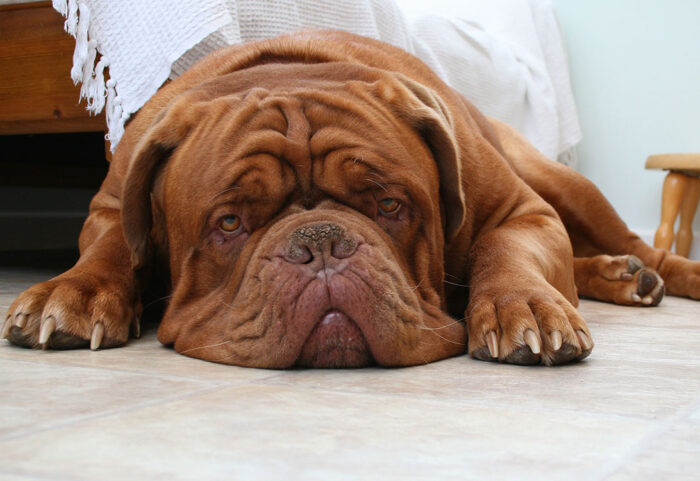5 Most Common Shiba Inu Health Concerns
Shiba Inus are famous for their fox-like faces, bold personalities, and independent spirit. They’re clean, clever, and endlessly entertaining, but they also have quirks that set them apart from other breeds. While these dogs are a joy to live with, they do have some health concerns that are more common in Shibas than in many other breeds.
If you’re considering bringing one of these dignified dogs into your family, it’s essential to know both what kind of lifestyle suits them best and the health issues you may encounter. With the proper preparation and care, your Shiba Inu can live a long, healthy, and happy life.
Is a Shiba Inu the Right Dog for Your Family?
They bond closely with their families and can be wonderfully affectionate, but their sometimes stubborn personality means they do best with owners who have experience training strong-willed breeds.
A Shiba Inu is an excellent match for individuals or families who enjoy daily walks, outdoor adventures, and mental stimulation, as this breed needs consistent activity to stay happy.
Because of their high prey drive, they may not be the ideal choice for homes with cats or small animals, and they can be cautious around strangers.

1. Atopy in Shiba Inus
Shiba Inus are prone to atopy, a type of environmental allergy triggered by airborne substances such as pollen, mold, or dust. The immune system reacts too strongly to these allergens, leading to itchy skin, red paws, or ear infections.
Many owners first notice their Shiba constantly scratching, licking, or chewing at their feet. Some dogs may develop recurrent skin infections if the allergy isn’t managed.
While there’s no permanent cure for atopy, symptoms can be managed with:
- Medications (antihistamines, steroids, or newer allergy drugs prescribed by a vet)
- Frequent baths with hypoallergenic shampoo to remove allergens from the coat
- Lifestyle adjustments like using air filters indoors or limiting outdoor exposure during peak allergy seasons
Atopic dermatitis is one of the most common chronic skin diseases in dogs, including Shiba Inus. Beyond traditional medications, veterinary researchers are exploring new options such as stem cell therapy. Early studies suggest that stem cells may help reduce inflammation and support healthier skin in dogs with allergies that are difficult to control.
You can read more in our article: Stem Cell Therapy for Canine Atopic Dermatitis (CAD): Investigating a New Way to Help Dogs with Chronic Itchy Skin.
2. Hip Dysplasia in Shiba Inus
Hip dysplasia is a skeletal disorder where the hip joint doesn’t fit properly in its socket. Over time, this leads to pain, arthritis, and difficulty moving. While hip dysplasia is common in larger breeds, Shiba Inus are also at risk.
Watch for signs like:
- Reluctance to climb stairs or jump
- Limping or “bunny hopping” gait
- Decreased interest in play or exercise
Treatment varies depending on severity. Mild cases may be managed with joint supplements, weight control, physical therapy, and pain relief medication. In more advanced cases, surgical correction may be needed. Some pet owners also explore stem cell therapy for dogs, which is being studied for its potential to support joint repair and reduce inflammation.
3. Patellar Luxation (Kneecap Problems)
Another common orthopedic issue in Shiba Inus is patellar luxation, a condition where the kneecap slips out of its normal position. This can range from mild, such as occasional skipping while walking, to severe, such as the inability to put weight on the leg.
Owners often notice their Shiba suddenly hopping on three legs, then resuming normal walking. Over time, repeated luxations can cause canine osteoarthritis and mobility issues.
Mild cases may only require monitoring and weight management. More serious cases often need surgery to realign the kneecap, along with pain relief and physical therapy during recovery.
To help lower the risk of patellar luxation, limit activities that put unnecessary stress on the knees. For example, avoid letting your Shiba jump from high furniture such as couches or beds, since repetitive impact can worsen knee problems.
4. Hypothyroidism in Shiba Inus
Shiba Inus are among the breeds more prone to hypothyroidism, where the thyroid gland doesn’t produce enough hormones to regulate metabolism.
Common symptoms include:
- Low energy or lethargy
- Unexplained weight gain
- Dry skin, hair loss, or a thinning coat
- Increased sensitivity to cold
Hypothyroidism can’t truly be prevented, but annual wellness bloodwork gives veterinarians a chance to catch thyroid imbalances before symptoms become severe. This disease is easily managed with lifelong daily thyroid medication, allowing affected dogs to live healthy, normal lives.
5. Cataracts in Shiba Inus
Cataracts occur when the lens of the eye becomes cloudy, interfering with vision. In Shiba Inus, cataracts may be inherited, age-related, or associated with conditions such as diabetes.
You may notice your Shiba developing a bluish or cloudy appearance in the eyes, bumping into objects, or hesitating to move around in dim light.
Depending on the severity, surgical removal of cataracts may restore vision. Regular veterinary eye exams are crucial for early detection of cataracts and for preventing permanent vision loss.
Preparing for Life With a Shiba Inu
Living with a Shiba Inu means embracing both their charm and their challenges. Consistent training, regular veterinary visits, and a proactive approach to health care go a long way toward ensuring these spirited dogs thrive. Staying informed is just as important—new advances in veterinary medicine are creating options that didn’t exist even a few years ago.
Regenerative medicine is one of the most promising areas of research today. Ready-to-use, off-the-shelf stem cell therapies are already being studied in dogs with canine osteoarthritis and canine atopic dermatitis, two conditions that affect Shiba Inus more often than many owners might expect. The goal is to address disease at its source — by reducing inflammation and supporting tissue repair — and to offer comfort and improved quality of life where conventional treatments may fall short.
Science in Action for Pets
Gallant partners with leading veterinarians to study ready-to-use stem cell therapies for dogs. Learn how these studies are paving the way for safe, FDA-approved treatments.


